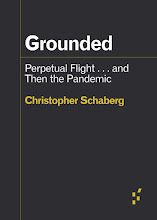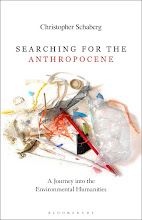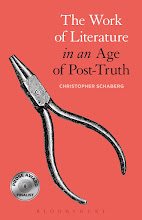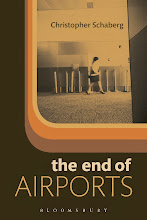
"Faith in spies is mystical, fuelled by fantasy and halfway to religion. They're a protected species in our national psychology." —John Le Carré, "The Madness of Spies"
In this post I discuss the rhetorical term 'metalepsis' as it appears in William Gibson's recent novel Spook Country. Early in the narrative when one of the characters finishes a call on a cell phone, "She...clamshelled her phone" (4). Richard Lanham defines metalepsis as a "Present effect attributed to a remote cause," and also paraphrases Quintilian by describing metalepsis "the transition from one trope to another...a kind of compressed chain of metaphorical reasoning" (Handbook of Rhetorical Terms, 99). This word "clamshelled" functions as a metalepsis: the metonymic action of closing a flip-phone (an action standing in for the object) is described by way of not only a clam (which would be an outright metaphor), but specifically by way of the hinging of a clam's shell as it opens or closes. So an active part of the creature is used to describe the shape of the phone; it is a metonymy within a metonymy, the image of an organic action lodged within a technological object's hinge function.
An interesting pairing in an introductory literature course would be to read Gibson's novel juxtaposed with a screening of the Coen brothers' latest film, Burn After Reading. Like Gibson's novel, in this film the intrigue of spying pales in comparison to the everyday personal adventures offered up by Home Depot, "Hard Bodies" workout centers, and iPods. The literature class might trace how metalepsis functions as a logic of informational coding in the spy narrative: where metalepsis occurs, the form becomes the content and the reader becomes the spook. But as Gibson and the Coen brothers both wonder, what happens when the code does not conceal a national secret? What would it mean to make a metalepsis of nothing?













